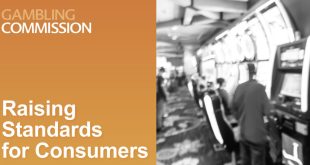
Charles Cohen CEO and Founder of player affordability solutions provider DoTrust tells SBC, that operators must be prepared to tackle the cost-of-living crisis, as UK households face the biggest economic pressures in over 50-years.
Gambling may indeed be recession resilient but the cost-of-living crisis in the UK will put pressure on punters’ wallets at a crucial time in the evolution of the sector.
The cost-of-living crisis was already rising on the agenda in the UK ahead of the Ukraine crisis and its effect on the cost of oil and gas. Recent events will only exacerbate what is already an inflationary environment affecting everything from energy bills to the price at the pump to the weekly shop.
But how does the price of a bag of dried pasta relate to the prices quoted this weekend’s Premier League fixtures? The obvious link is disposable income; inflation has real-world consequences for punters and the far-reaching effects are not something that operators can ignore.
The Price of Everything
The latest news from the UK’s Office of National Statistics (ONS) paint a somewhat grim picture. A regular survey conducted in February found that a large majority were already feeling the pinch.
Asked whether the cost of living had increased over the previous months, 81% of respondents said it had compared with 62% who said the same in November. The survey found that many were struggling to pay for essentials; 22% said they had been spending savings and 215 of under-50s said they were borrowing more either through credit cards or loans.
The link to gambling should be obvious. Price hikes, and particularly the kind of unpredictable and sharp increases we are seeing currently, erode away at many people’s disposable income… That is, the money they use for a pastime such as gambling.
Previous recessions have shown that while betting customers are unlikely to stop gambling altogether, they are likely cut down on their spend. That is likely the situation in the coming months; with consumers having less money in their pockets, the potential is there for spending on gambling to take a hit.
Further, when consumers do gamble will also be looking more clearly for value, whether that is in terms of the product mix, wager type of bonuses and rewards. So, the price of pasta rises, the less money there is to go around, operators have to work harder to attract the money that is available and margins necessarily narrow.
A Wider Conversation
Bearing in mind where the gambling sector is currently with the Gambling Act review white paper still pending and debates ongoing in the press over affordability, it is fair to surmise this impending crisis couldn’t have come at a worse time.
But that would be to ignore what I think is an opportunity thrown up by the inflationary backdrop.
Understanding the Nuts and Bolts of Household Finances
I’m talking here are the issue of the general understanding of personal finance.
Understanding how money works and how to manage your own household budget and pre-requisites for leading a stress and hopefully debt-free – life. It is also at the centre of the debate around gambling and affordability.
There is a reason why the start of every intervention script starts with the question ‘do you ever lose track of how much you are spending on gambling?’
Operators are encouraged (by the Gambling Commission among others) to see their safeguarding role as being limited to what a person can afford to spend on gambling.
In more benign times – when inflation isn’t on the rise to the extent it is and economic uncertainty doesn’t loom large in the news – that focus on the personal aspect of an individual’s gambling behaviour is fine.
But these aren’t benign financial times. These are times of economic stress and gambling needs to be seen in the context of how well an individual manages their money overall.
This may have been adequate in benign economic times, but it isn’t now. If gambling spend is not seen in the context of how well in general a person manages their money, even the best-targeted interventions are liable to fail.
The Bigger Picture
Gambling doesn’t happen in isolation to a person’s other spending. It is part and parcel. This awful period of rising prices and economic disruption should help us to realise that gambling is just one element of the puzzle.
The better educated and empowered customers are those most capable of making the right calls for them when it comes to betting and gaming – and every other aspect of their personal finances.
I recently checked on a dozen or so gambling sites and didn’t find a single one offering links to general financial wellbeing tools or counselling services. It’s as if the rest of the player’s financial life doesn’t exist, just their gambling…. and that’s not sustainable – six months from now, will you be part of the change?
__________________
The Department of Trust has launched a fortnightly newsletter that will discuss issues around gambling, affordability and the cost of living. You can sign up here.










